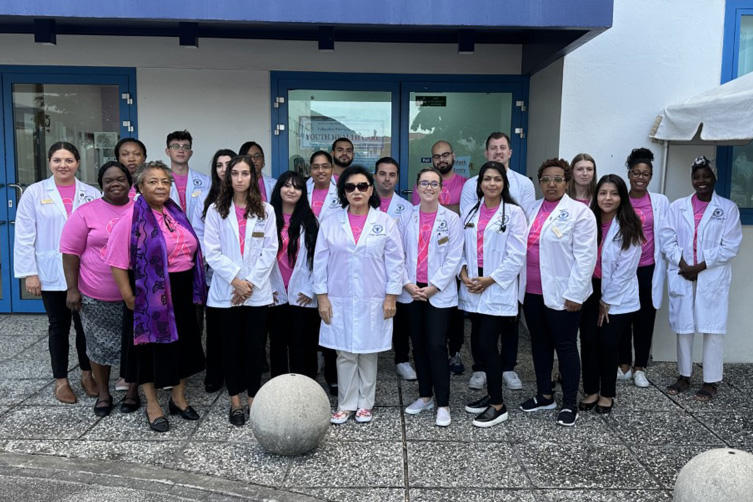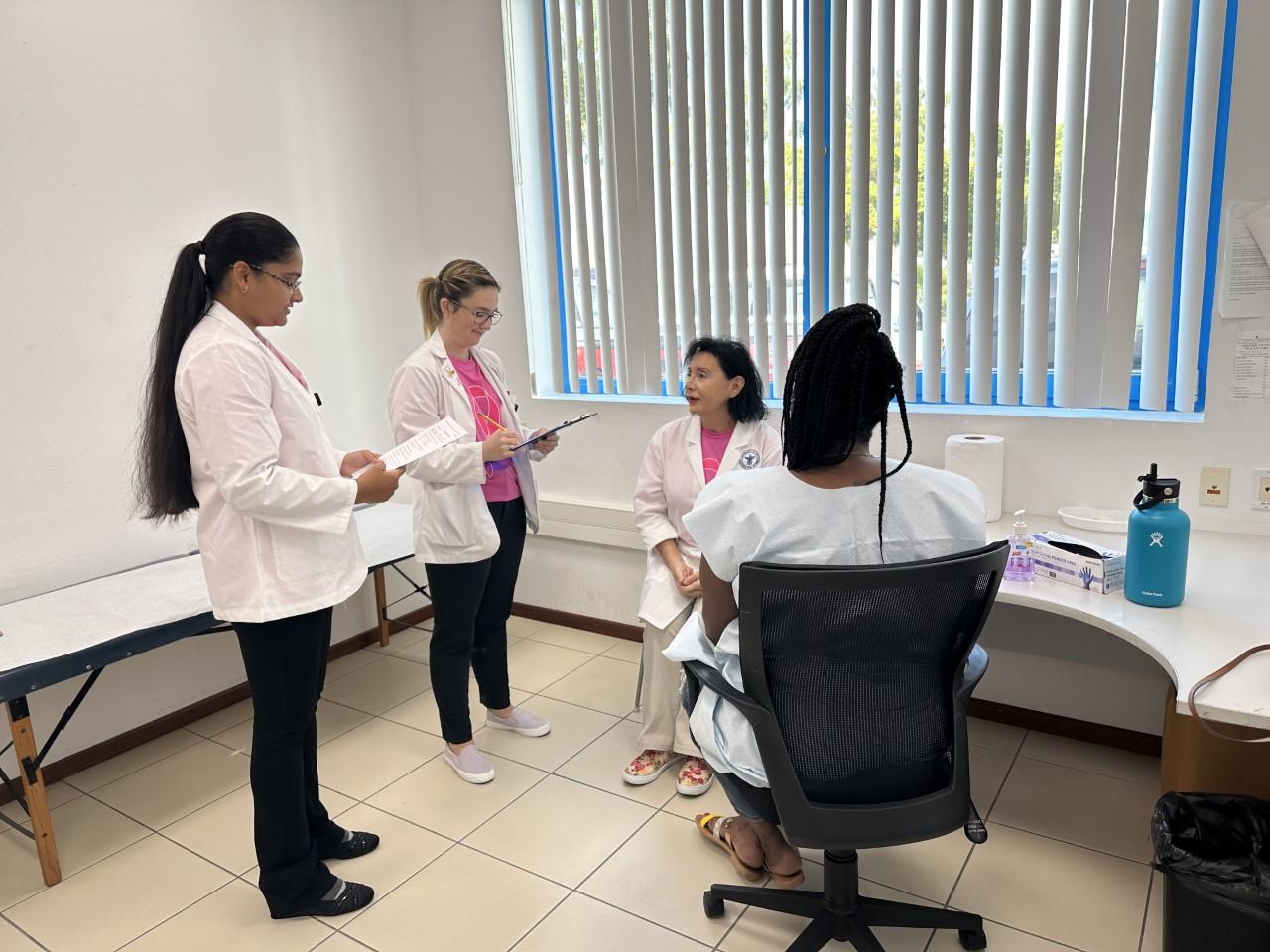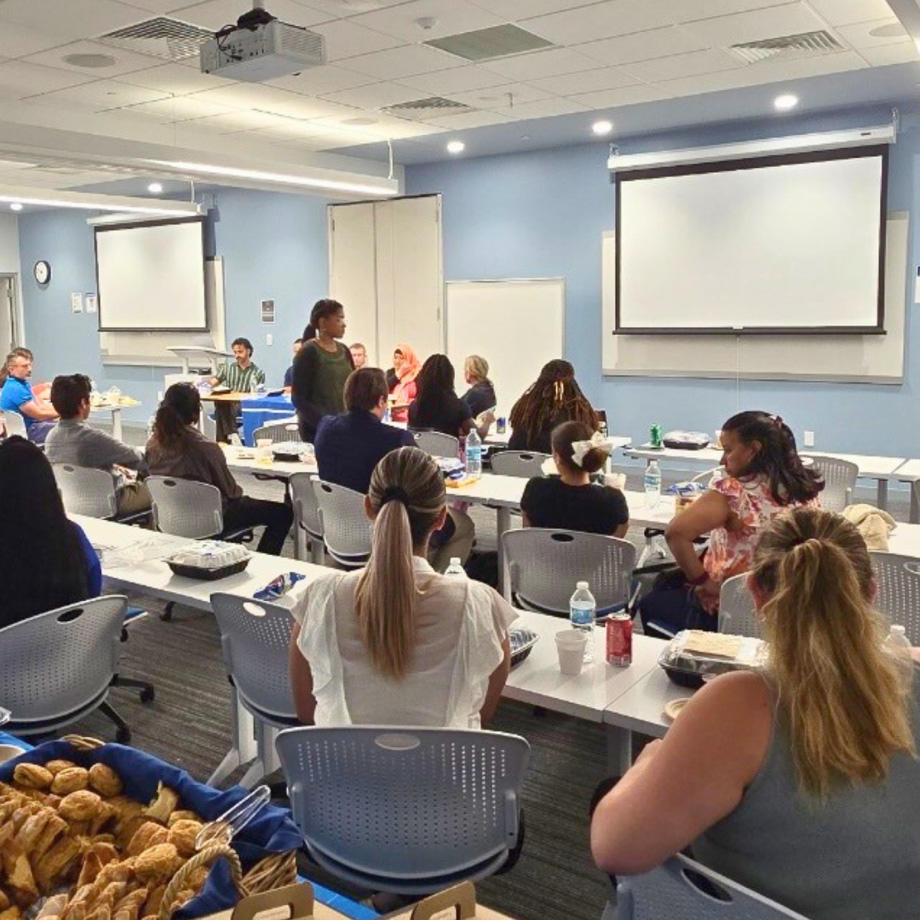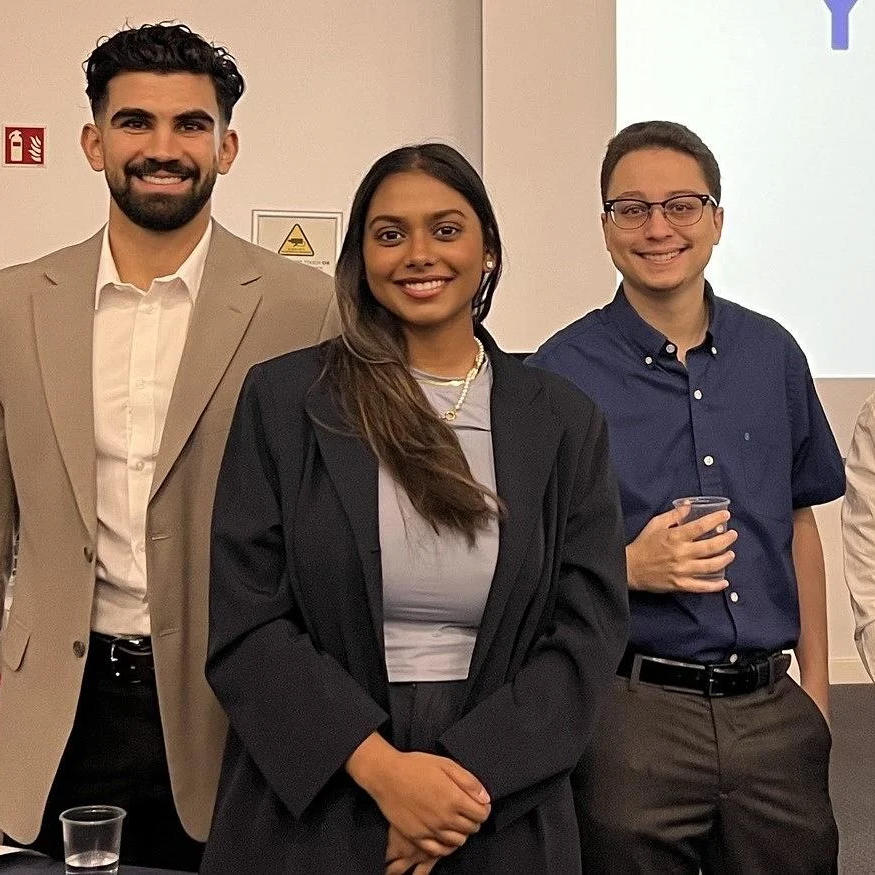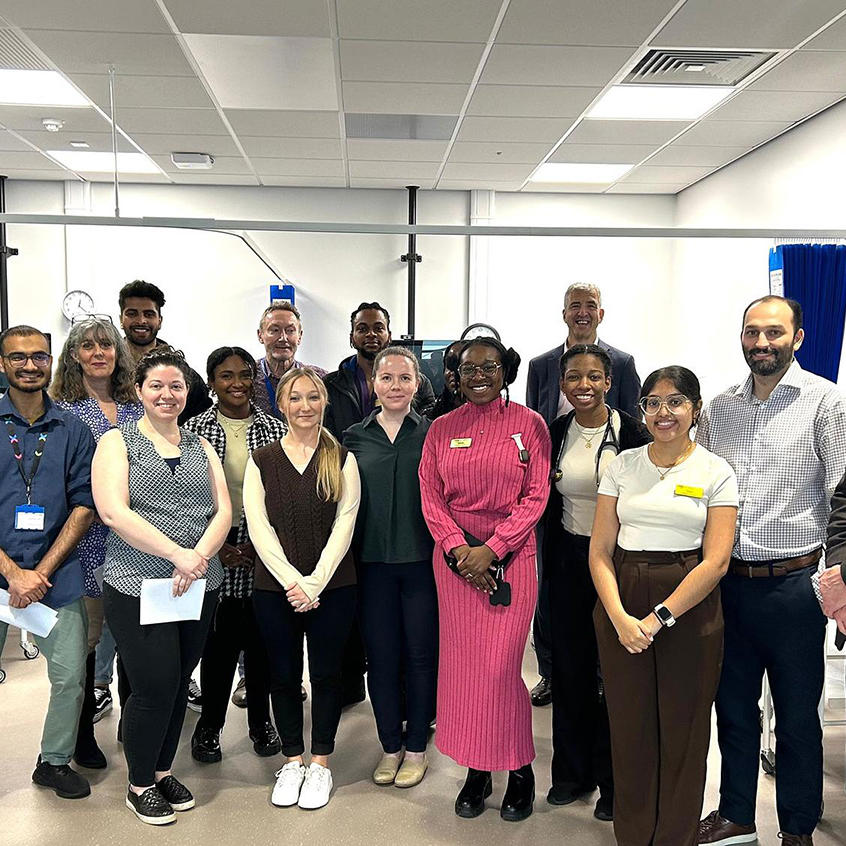American University of the Caribbean School of Medicine in collaboration with the Positive Foundation and The Ministry of Public Health, Social Development, and Labor, hosted a successful breast screening event on Saturday, March 11 in Philipsburg. This project provides free health screenings along with educational information about breast cancer symptoms and risk factors and is vital to understanding the prevalence of breast abnormalities within the population of Sint Maarten. All results will be reported to the Ministry of Public Health to help establish policies for the screening of breast abnormalities and cancer.
This was the second of three events scheduled this semester. The next screening will take place on March 25.
Dr. Chobanyan, an oncologist and professor of clinical medicine at AUC, her team of clinical medicine fellows and 17 medical students under supervision provided free health screenings to 33 local women. The screenings included taking a history, checking vital signs, assessing body mass index, measuring waist circumference, visual acuity, blood glucose and cholesterol levels. Each case was presented to the faculty, followed by the clinical breast examination done by Dr. Chobanyan. To date, Dr. Chobanyan has screened 565 local women.
The educational part of the event includes a presentation of the risk factors for breast cancer, demonstration of the clinical breast examination on plastic models, and assessment of individual risk for breast cancer in women over 35 years old.
In addition to the benefits this research brings to the community of Sint Maarten regarding breast awareness and education, clinical fellows and medical students are afforded an opportunity to gain real-world clinical experience. They applied the skills and knowledge that they learned in clinical medicine classes in real-life settings. In each screening event, students observed breast and general pathologies and learned how physicians execute critical thinking and clinical reasoning based on the history and physical examination. By working with real patients, conducting interviews, and performing an overall health assessment, medical students will be better prepared for their clinical rotations.


